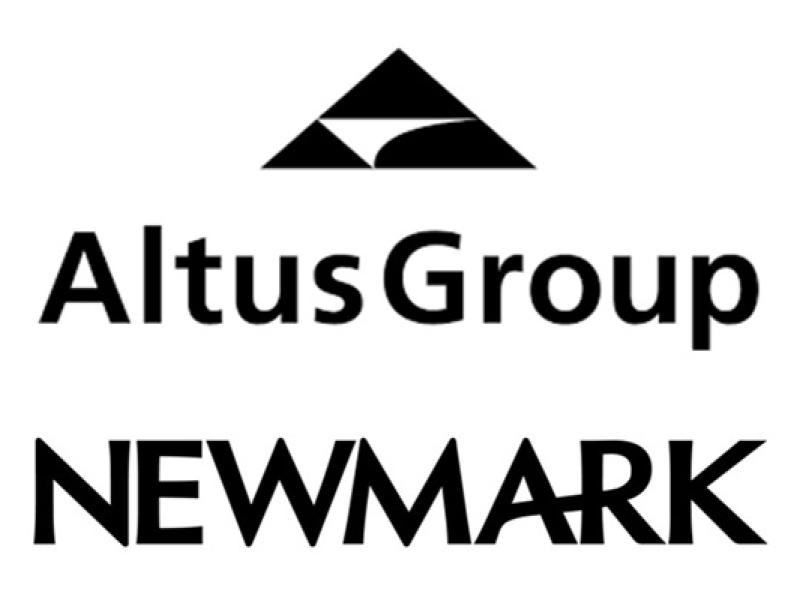Vision Capital Corporation isn’t afraid to take a public stand when it comes to takeover bids affecting its investments, injecting itself into two prominent ongoing commercial real estate acquisition attempts in recent days.

Vision Capital partners: Frank Mayer, Jeffrey Olin and Andrew Moffs. (Image courtesy Vision Capital)
Toronto-based Vision, which manages the Vision Opportunity Funds, is encouraging Pure Multi-Family REIT LP’s (RUF-UN-X) board of directors to accept Electra America’s proposal to purchase its outstanding class-A units. Pure Multi-Family, however, maintains the all-cash US$7.59 per unit offer is inadequate and has rejected the bid.
“We’ve followed the situation for many years and have been a large shareholder for many years,” said Vision president, chief executive officer and portfolio manager Jeffrey Olin. “I’ve toured all of the real estate (Pure Multi-Family’s properties in Arizona and Texas) at least once, and I think it’s exceptionally high quality and extremely well-maintained.”
Vision doesn’t, however, support Brookfield Property Partners’ (BPY.UN-T) latest offer to buy the remaining 66 per cent of American mall owner GGP Inc. (GGP-N) that it doesn’t already own.
Pure Multi-Family REIT and Electra America
Vancouver-based Pure Multi-Family’s own International Financial Reporting Standards valuation is US$6.53 per unit, while Olin said the consensus of several analysts had pegged its net asset value at US$6.78 per unit. Vision’s valuation is higher than both of those but lower than what Electra, a Florida-based owner and operator of multi-family properties, is offering.
Vision sent a letter to Pure Multi-Family on April 4 and recommended that all unitholders encourage Pure Multi-Family to engage in discussions with Electra regarding its offer. Pure Multi-Family responded the next day by issuing a media release which said its board had initiated a formal process to explore the potential sale of the REIT.
Pure Multi-Family said it had communicated with Electra and Pure Multi-Family’s board determined that unitholders should reject its proposals because:
* they don’t fully value Pure Multi-Family’s portfolio;
* other companies are capable of paying more;
* and Electra’s proposals are highly conditional and require a 30-day exclusivity period.
While some analysts support Pure Multi-Family’s stance, Olin said many investors have told him they agree with Vision’s position. Olin insists Pure Multi-Family’s focus should be on all-cash bids of US$7.59 or higher.
GGP and Brookfield Property Partners
On the Brookfield-GGP front, Brookfield’s revised offer is US$23.50 per GGP share. It consists of 61 per cent in cash and 39 per cent in either Brookfield shares or shares in a new vehicle that would track Brookfield’s economic returns and qualify for U.S. REIT status for tax purposes.
“The Brookfield bid substantially undervalues the real estate, including Brookfield’s own independent assessment of the value of that real estate, which as of the middle of November was $29.50,” said Olin, who acknowledged Vision is a small shareholder in GGP.
“It’s further complicated by the transaction considerations, which include Brookfield Property Partners units, and we believe it has onerous tax consequences for shareholders of GGP.”
Three Brookfield executives sit on GGP’s board of directors. An earlier offer from November was rejected by a special committee of GGP’s board comprised of non-executive, independent directors.
The GGP special committee has accepted the new offer, entered into a definitive agreement with Brookfield, and recommends shareholders accept the terms. The proposed agreement is subject to a shareholder vote of the majority of the non-Brookfield shareholders.
A Brookfield media release said the transaction is also subject to other customary closing conditions and is expected to close early in the third quarter.
Chicago-headquartered GGP’s share price closed at US$20.05 on the New York Stock Exchange on April 11.
Analysts James Sullivan and Ami Probandt from San Francisco-based global financial services firm BTIG have also recommended GGP’s independent shareholders reject the new Brookfield offer.
Vision likes undervalued retail real estate
While media reports on the death of retail circulate, not all retail is created equal and, for Vision, this creates value in firms such as GGP. High-quality, well-located shopping centres continue to perform impressively, but many of their owners have seen their market valuations fall due to general negative perceptions of retail stocks.
“We like A-mall companies globally,” Olin told RENX. “They’re all undervalued.”
It’s a persistent theme with Olin and Vision in its strategy and presentations.
“There isn’t anything wrong with the best malls in the United States,” said a presentation made by Olin in October. “To the contrary, the preferred locations, compelling demographics and dominant presence preserve and enhance the real estate for the evolution of retail and other land uses.”
GGP owns 100 of the top 500 regional malls in the United States and 8.2 per cent of all high-quality retail real estate in the country. Fifty-six per cent of the American population lives within an hour drive of a GGP mall.
“When you read headlines (like) Sears giving back stores, Macy’s closing 100 stores, JCPenney closing 120 stores to 140 stores, the instantaneous reaction of investors is ‘Wow, this is trouble,’” GGP chief executive officer Sandeep Mathrani said at a conference last year.
“The instantaneous reaction at headquarters in GGP is ‘Wow, this is opportunity.’”







